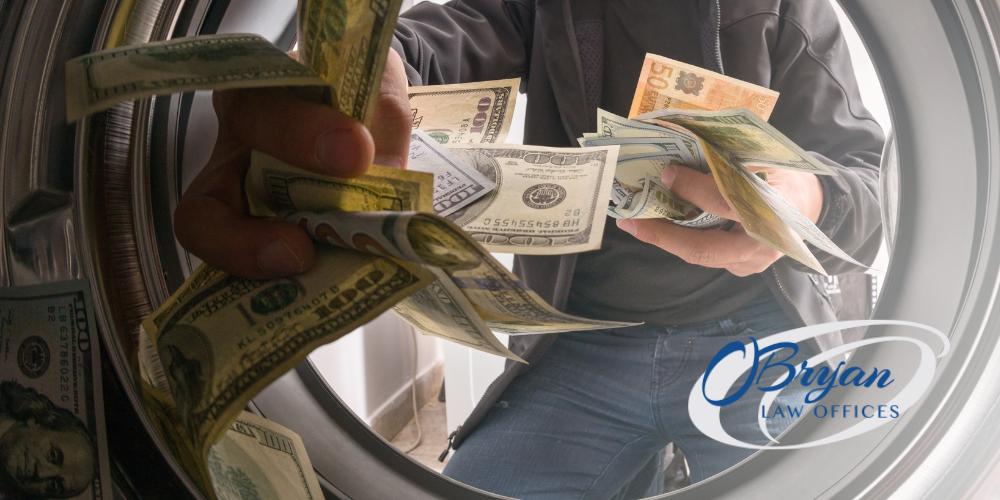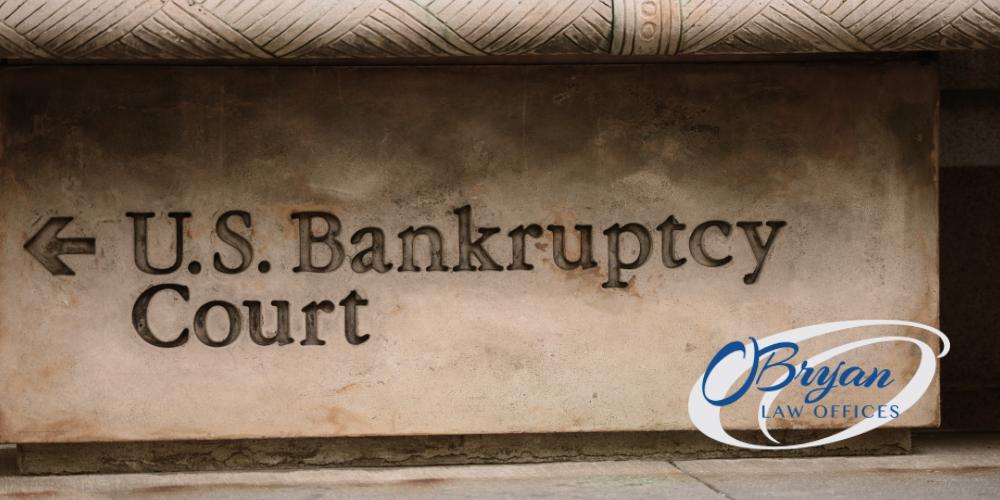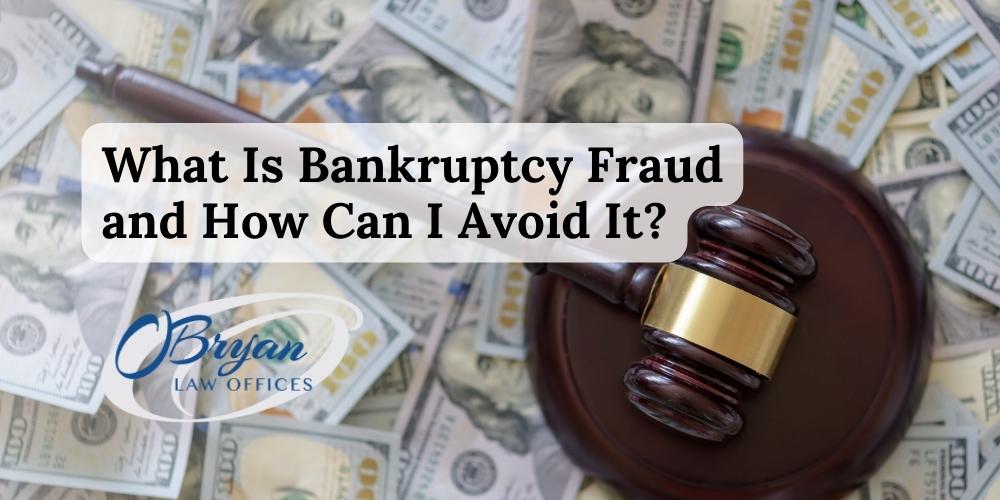Bankruptcy is a complicated process, and it can be quite invasive. It requires the petitioner to reveal all of their assets and debts to have those debts resolved. In exchange for this, it allows debtors to erase their past debts and start fresh. Some people, however, try to take advantage of the system and find ways to defraud their creditors.
Intentionally concealing assets in bankruptcy proceedings or lying to creditors during the bankruptcy process can be considered federal bankruptcy fraud. The best way to ensure you are complying with United States bankruptcy law is by hiring a bankruptcy attorney. The Louisville Bankruptcy attorneys at O’Bryan Law Offices are well-versed in bankruptcy law and can help you file correctly and avoid fraud accusations.
If you are struggling with debt and are considering filing for bankruptcy, call us at 502-339-0222 to discuss your options with an experienced legal professional on our team.
What Is Bankruptcy Fraud?
Bankruptcy fraud occurs when someone knowingly breaks federal bankruptcy laws at any point before, during, or after their bankruptcy proceeding. This is usually done by someone who intentionally misrepresents themselves or their assets to the bankruptcy court to deceive the court. Since it is against federal law to commit fraud during bankruptcy, the consequences for breaking that law can be serious.
Bankruptcy fraud requires an intent to commit fraud, so it can be difficult to commit federal bankruptcy fraud accidentally. Still, any fraudulent behavior can be cause for review, which is why it’s important to hire a bankruptcy lawyer who can help you file for bankruptcy the right way.
Examples of Bankruptcy Fraud

Most federal bankruptcy fraud cases involve hiding assets from the court in an attempt to protect them from being liquidated, like in a Chapter 7 bankruptcy. There are, however, other ways people can commit bankruptcy fraud, some of which may involve additional civil and criminal charges. Below are some examples of the different ways people commit fraud during bankruptcy.
Concealment of Assets
This is the most common form of bankruptcy fraud, which involves hiding assets from a bankruptcy trustee. This can include things like homes, cars, and bank accounts that someone may want to retain after filing bankruptcy. People can do this by moving their money into an offshore bank account or “gifting” a car to a friend before filing their bankruptcy petition.
Perjury or False Statements
Federal law prohibits individuals from knowingly making false statements on their bankruptcy petition or other related documents, or making false statements to their trustee. Lying at any point before, during, or after bankruptcy about anything relating to the bankruptcy could be considered bankruptcy fraud.
Bankruptcy Petition Mills
Bankruptcy fraud can also be committed by third-party individuals trying to exploit people in debt. Fraudsters will pretend to be financial advisors or other trustworthy professionals and promise to negotiate with creditors on someone’s behalf, usually for a large fee and/or large regular payments. In reality, the fraudster will file for bankruptcy on the victim’s behalf and keep any payments from the victim to themselves.
This is called a petition mill, and it is becoming a rising issue in the U.S. today. Fraudsters will take advantage of people in debt who may be desperate enough to believe their lies or overlook their deceptive business practices, leaving them with less money than they started with.
Why Would a Bankruptcy Filer Hide Assets?

The main reason people try to hide their assets is because they want to retain their assets through the bankruptcy process. In something like a Chapter 7 bankruptcy, a person’s assets may be liquidated, or sold, to pay off creditors. While certain necessary assets are exempt from bankruptcy, people may want to give up things like their cars, vacation homes, or other luxury items.
Another reason someone may hide their assets from their trustee is to defraud creditors. One of the biggest benefits of bankruptcy is the fact that certain debts can be completely discharged, relieving a person of some or all of their debts. Some people will hide their savings in an offshore account and claim that they have no money to pay off their creditors, hoping their debts are simply dismissed.
What If I Make a Mistake on a Bankruptcy Form?
If you make a genuine mistake during your personal bankruptcy filing, there’s no need to panic. Bankruptcy proceedings are often complicated, and trustees know this. If your bankruptcy trustee notices an omission or error, they may request that you file an amendment to your bankruptcy paperwork. This ensures that your bankruptcy proceedings are correct and in compliance with federal laws going forward.

It’s important to note that trustees will only allow for an amendment if they are certain that the mistake was unintentional. If a trustee finds additional assets that the debtor intentionally tried to hide, the trustee may call for a Rule 2004 examination to ensure the debtor’s remaining assets are included in the bankruptcy filings. The debtor may also have their petition for bankruptcy denied, leaving them at the mercy of their creditors without any bankruptcy protection.
What Are the Penalties for Federal Bankruptcy Fraud?
The penalties for committing bankruptcy fraud can be severe. If someone is caught committing any form of bankruptcy fraud, they could face up to 20 years in federal prison and up to $250,000 in fines for each count of fraud. They may also face additional consequences like probation, community service, and orders to pay restitution to victims.
If someone is caught committing fraud during bankruptcy, they may also be investigated for other white-collar crimes like bank fraud, tax fraud, mortgage fraud, wire fraud, and money laundering. Each of these crimes carries additional, serious punishments.
What Are Defenses to Bankruptcy Filing Fraud Charges?
Bankruptcy fraud allegations are serious, but luckily, there are ways to defend against these charges. One of the most effective ways to defend against this kind of fraud is by claiming the debtor did not intend to commit fraud. However, bankruptcy fraud prosecutions will know how to combat these claims, so it’s important to have evidence to back up claims of lack of intent.
Another way to defend against fraud is to claim that they didn’t knowingly commit fraud. They can claim that they did everything they thought they were supposed to do and did not know they made a mistake while filing. All counts of bankruptcy fraud require the person committing it to have knowledge of the fraudulent act.
If none of these defenses seem like they will work to help effectively avoid criminal charges, those accused of fraud can enter a pre-indictment plea negotiation. This may help them avoid being sentenced to serious jail time.
How to Avoid Accusations of Bankruptcy Fraud

Being accused of criminal bankruptcy fraud can be stressful, especially if the accusations are false. Luckily, there are some easy steps you can take to ensure your case is fully compliant with federal bankruptcy law.
Hire a Kentucky Bankruptcy Attorney
One of the easiest ways to ensure that you won’t commit bankruptcy fraud is by hiring a bankruptcy attorney. Bankruptcy attorneys will understand federal bankruptcy laws, as well as the consequences of breaking them, and can help you navigate the bankruptcy system from start to finish.
Our attorneys at the O’Bryan Law Offices are experienced in different types of bankruptcies. They can help you through your bankruptcy proceeding, regardless of which chapter you want to file under. They will also be able to ensure your paperwork and financial documents are complete, factually accurate, and filed on time.
Complete and Submit All Paperwork On Time
Be sure to complete and file all paperwork with the bankruptcy court on time to avoid a notice of deficiency. If you fail to file the necessary paperwork within 14 days of the deficiency notice, your bankruptcy case may be dismissed.
Disclose All of Your Assets to the Bankruptcy Trustee

It’s important that you disclose all of your assets to your bankruptcy trustee. If you accidentally omit assets from your bankruptcy filing, you’ll be asked to file an amendment to your bankruptcy case. If you purposely omit assets from your bankruptcy filing, you could be sued by unpaid creditors or charged with a federal crime.
Contact the Kentucky Bankruptcy Lawyers at O’Bryan Law Offices Today
Bankruptcy is complicated, but luckily, you don’t have to do it alone. The bankruptcy attorneys at O’Bryan Law Offices are prepared to help you file your bankruptcy the right way and have a chance at a fresh start. Call us at 502-339-0222 or contact us online to schedule an appointment with one of our skilled attorneys.








